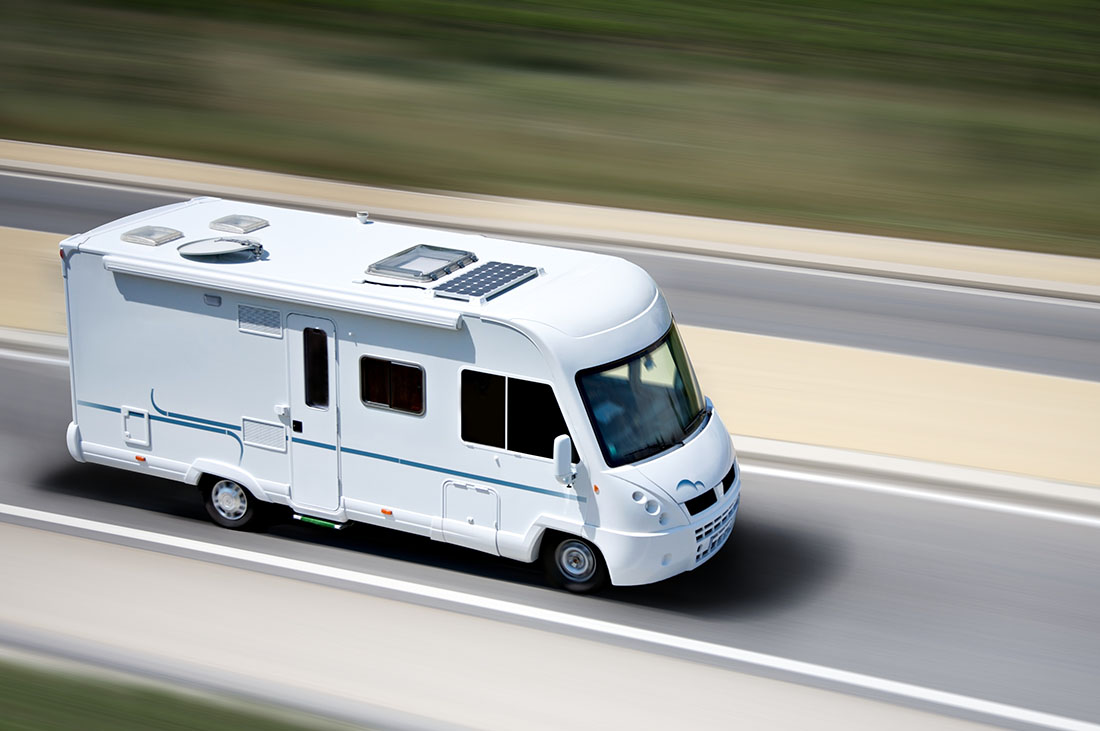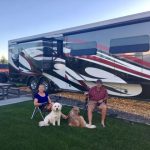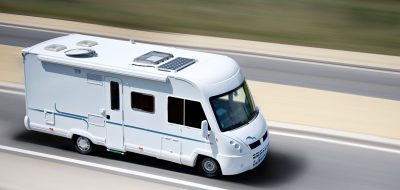RV hydraulic brakes — a little maintenance makes a big difference.
Maintenance on motorhomes can differ from your daily driver due to the infrequency of use and the age of the vehicle. While your car is used pretty well on a daily basis, the same is not true with most motorhomes. Also, unlike an automobile, most people keep their RV for longer periods of time. You expect corrosion to be a factor along with some seizures of components from the lack of use.
One of the things you must pay special attention to is the braking system. But even if the brakes have lots of lining left, you might feel they don’t seem to work at the level you would expect. Perhaps the vehicle is just showing its age. But is that acceptable? No! Whether it is a class B, C or A, the brakes need to perform to the best of their ability.
RV Hydraulic Brakes — Linings
Okay, there is plenty of brake lining. The braking applies evenly with no side pulling. However, the brake pedal feels a little sponge-like when applied.
Well, in the old days, we would just bleed the brake system at each wheel and top up the reservoir. And this seems to still work. Well, at least it did at first. You may again soon experience the spongy brake pedal.
So, what’s the issue here and how can it be corrected?
Brakes — Fluid is Key
In all likelihood the brake fluid has never been flushed and changed. All vehicles equipped with hydraulic brakes should have the brake system flushed and new fluid installed at least every few years. Failure to do this will result in inefficient braking performance. In addition, internal system component corrosion may occur.
To understand the importance of this you must grasp the characteristics of automobile brake fluid. While there are a variety of types, they all are prone to absorbing moisture. Moisture from humidity, condensation, and the like are all absorbed over time into brake fluid. This moisture, unlike the fluid itself, has a boiling point of 212 F. degrees or so, far below that of the brake fluid. Very high temperatures in the fluid directly at the drums or calipers occur during even light braking. The moisture, or water, boils, creating vapor within the closed circuit. Vapor is far more compressible than a fluid. This results in poor braking performance and the spongy feeling on the brake pedal.
So, if your motorhome’s brakes do not seem as good as they were when the vehicle was new, have the fluid flushed and replaced and it well may be.
Peter Mercer — With The Braking News






Peter Mercer
That does not right at all. It is hard to believe that any shop would ignore such a safety issue. I certaimly do hope you get to the bottom of the issue and now have it solved. Thank you for sharing your experience with this issue.
Anonymous
Hi Peter
All very good and useful advice. I have a 1994 33 foot Thor on I believe on a E550 chassis ( Ford ).
Drove it about 3000 miles with no problems. Took it to a Ford truck center for a safety recall and have had 100% brake failure with in the first 20 miles every time i took it out. Called the center about it and they said to bring it in. Are you #@&% kidding me!!! I;m not driving to the center about 75 miles from me and they were not interested in sending a mechanic to look at it. Was almost a year before I drove it over 20 miles. Took it for short drives and top off the tank. First time going out of town over 20 miles, NO BRAKES. After sitting a couple hours it had brakes again. The recall installed a device on the right front I believe right after the vacuum booster. I was told it was to prevent vapor lock. Do ya think it worked???
Peter Mercer
Pretty well all gasoline powered motor homes are equipped with hydraulic braking, as are front engine diesel units. Almost all diesel pushers are air brake equipped. Towable RV’s rely on electric brakes or inertia type. Thank you for your comment.
Anonymous
Hi, Peter:
A different type of question, please:
As a general rule – what types of RVs use which types of braking systems? Would it be fair to say that only smaller/old rigs use hydraulics, while diesel/larger/motorhomes use air brakes and newer/larger trucks/towables use electric brakes? Or is there a different mix than that?
Peter Mercer
Great information! Also it is important to know that air brake equipped RV’s today are self adjusting. That is, the slack resulting for the brake shoes or pads, ratchet the slack up as needed. If any additional adjustments are required, or if service is needed, have a qualified technician inspect and repair it. Thank you for your great input.
Peter Mercer
Silicone based brake fluid (DOT 5) has some short falls such as being somewhat more compressible when compared to glycol based. It also tends to thicken in extreme cold climates. Its ability to not absorb moisture is not the end of the story. Thank you for participating on this topic.
Anonymous
To the guy with air brakes, Peter is correct. I want to add shut off the engine and have an assistant hold the service brake down while you listen for air leaks. Many times a ruptured diaphragm in the brake chamber will be leaking or the air hose that feeds it. Your air compressor should run the pressure to 125psi and you will hear the air dryer purge valve blow off once. You may also notice the air compressor will slightly quiet up. This is from the unloaded piston holding the intake valve open so it stops building pressure. Also, measure your brake chamber stroke. With the parking brake set there should not be more than 4″ from the clevis pin to the chamber housing. I recommend adjusting the brakes on a regular basis. Get a good heavy truck mechanic to help you with it. Air brakes are simple, but require some special knowledge to work on them. Brakes are a top safety item so don’t drive the unit until you know it is safe to do so!!!
Anonymous
A silicone based brake fluid will not absorb moisture. It would require complete system flush out, but I think anything that sits for long periods between use should consider using it. I have often wondered why oem manufactures don’t install it from the factory on RV chassis.
Anonymous
I have had brake caliper failure due to brake fluid that had taken on water , it swelled the pistons on my E450 class C . I now have a brake flush every two years.Bob W.
Anonymous
Good tip and timely for me…thanks!
Peter Mercer
Okay, your air brake system numbers don’t look right. Your air pressure should not be dropping to 40 psi when in heavy traffic. If that is the case could be one, or more of several causes. Continuing pumping the pedal when stopped is not only not necessary but, depletes the reserve air pressure. Possible leaks in the system. Compressor not producing sufficient pressure. Governor unloading at too low a pressure. Etc,
So, let’s test it to determine the issue.
* Let the pressure build while parked while listening for the governor to dump the air. One loud swoosh.
* The pressure on both the primary gauge and the secondary should be somewhere around 125 psi when the governor unloads.
* Block the wheels of the coach to prevent moving. Release park brake. Make sure you have over 100 psi air pressure in both tanks. Shut off engine and apply brake pedal fairly hard. Do not release pedal. Observe air pressure gauges for 1 minute. If the pressure drops more than 3 psi, the system has a leak(s) and must be repaired.
* Fan brake pedal to drop pressure to below 80 psi. Start engine and run 600 to 900 RPM while observing the air pressure. When pressure reaches 85 psi, start timing. Air pressure must reach 100 psi in 2 minutes or less. Failure of this indicates possible compressor failure.
That’s the short version test which should help you determine the possible issue. Anyway, give it a try.
Thanks for your comment.
Anonymous
good info , what about those of us who have air brake issues ,such as pumping up to 100psi then droping down to 40 when braking in traffic ,is it a leak ? thank you for any info you can give getting scared to rive a 30,000lbs bus in traffic…